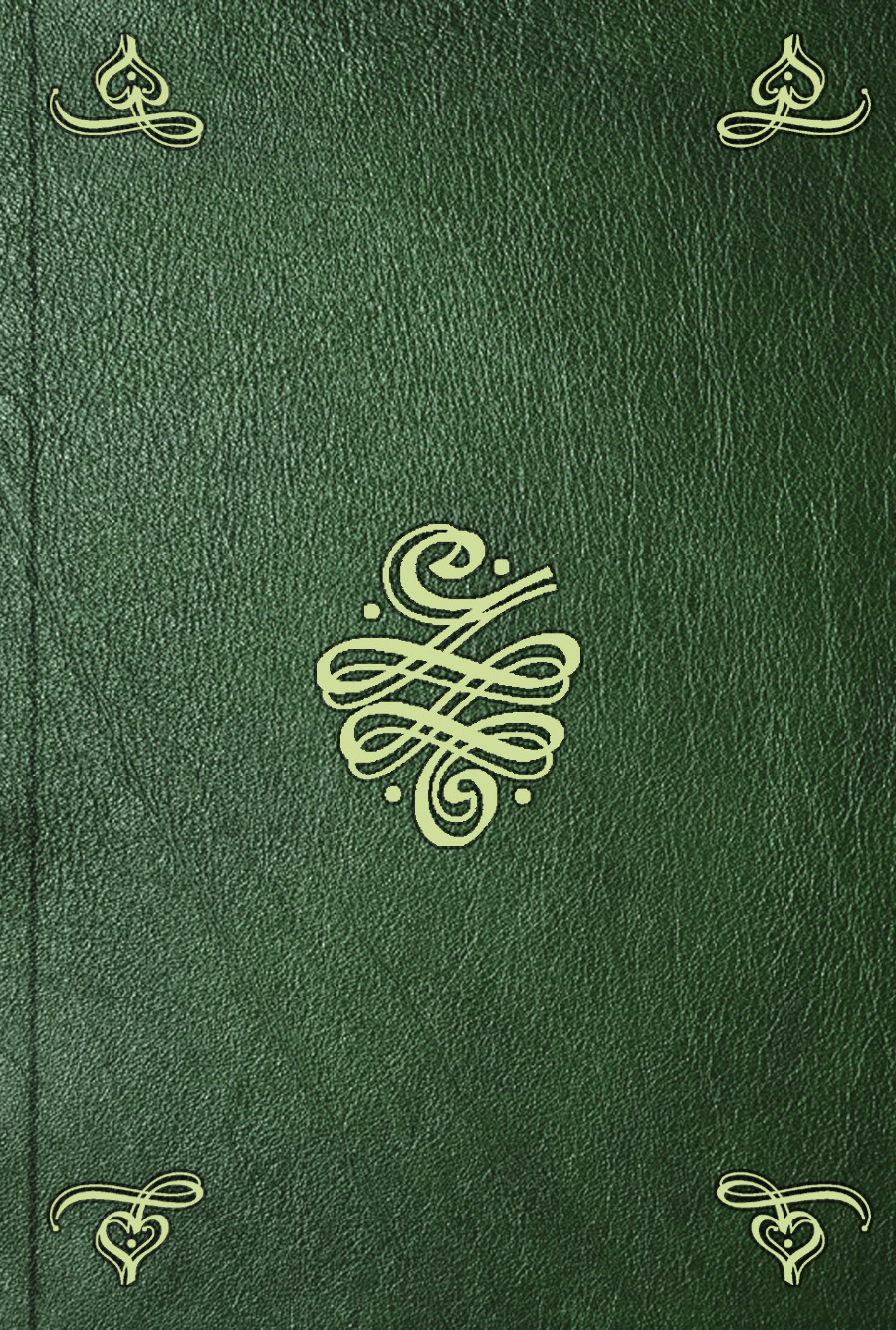Электронная книга: Johann Heinrich Voss «Kritische Blatter nebst geografischen Abhandlungen. Bd. 1»

|
Полный вариант заголовка: «Kritische Blatter nebst geografischen Abhandlungen. 1 Band / von Johann Heinrich Voss». Издательство: "Библиотечный фонд" (1828)
электронная книга Скачать бесплатно на Litres |
Другие книги автора:
| Книга | Описание | Год | Цена | Тип книги |
|---|---|---|---|---|
| Briefe. Bd. 2 | Примечание: Письма И. Г. Фосса. Полный вариант заголовка: «Briefe von Johann Heinrich Voss. Bd. 2 / nebst erläuternden Beilagen hrsg. von Abraham Voss» — Библиотечный фонд, электронная книга Подробнее... | электронная книга | ||
| Kritische Blatter nebst geografischen Abhandlungen. Bd. 2 | Полный вариант заголовка: «Kritische Blatter nebst geografischen Abhandlungen. 2 Band / von Johann Heinrich Voss» — Библиотечный фонд, электронная книга Подробнее... | электронная книга | ||
| Briefe. Bd. 1 | Примечание: Письма И. Г. Фосса. Полный вариант заголовка: «Briefe von Johann Heinrich Voss. Bd. 1 / nebst erläuternden Beilagen hrsg. von Abraham Voss» — Библиотечный фонд, электронная книга Подробнее... | электронная книга |
Johann Heinrich Voss
Johann Heinrich Voss ( _de. Johann Heinrich Voß IPA2|ˈfɔs;
Life
Voss was born at
In 1775 Boie made over to him the editorship of the "Musenalmanach", which he continued to issue for several years. He married Boie's sister Ernestine in 1777, and in 1778 was appointed rector of the school at
In 1782 Voss accepted the rectorship of the gymnasium at
Voss was a man of a remarkably independent and vigorous character. From 1785 to 1795 he published in two volumes a collection of original poems, to which he afterwards made many additions. The best of these works is his idyllic poem "Luise" (1795), in which he sought, with much success, to apply the style and methods of classical poetry to the expression of modern German thought and sentiment.
Work
In his "Mythologische Briefe" (2 vols., 1794), in which he attacked the ideas of
It is, however, as a translator that Voss chiefly owes his place in German literature. His translations indicate not only sound scholarship but a thorough mastery of the laws of German diction and rhythm. The most famous of his translations are those of
In his "Alte Weltkunde" (1804) Voss argued that the "Odyssey" most probably describes certain landscapes in the British Isles.
Voss's "Sämtliche poetische Werke" were published by his son Abraham in 1835; new ed. 1850. A good selection is in A Sauer, "Der Göttinger Dichterbund", vol. i. (
According to "
References
*1911
Источник: Johann Heinrich Voss
См. также в других словарях:
Johann Heinrich Voss — Johann Heinrich Voss, 1797. Johann Heinrich Voss (en alemán, Johann Heinrich Voß, pronunciado AFI: [ˈfɔs]; Sommersdorf, 20 de febrero de 1751 – Heidelberg, 29 d … Wikipedia Español
Johann-Heinrich Voss — Johann Heinrich Voß, Sepiazeichnung von Joseph Nicolaus Peroux Johann Heinrich Voß (* 20. Februar 1751 in Sommerstorf bei Waren (Müritz), † 29. März 1826 in Heidelberg) war Dichter und … Deutsch Wikipedia
Johann Heinrich Voss — Johann Heinrich Voß, Sepiazeichnung von Joseph Nicolaus Peroux Johann Heinrich Voß (* 20. Februar 1751 in Sommerstorf bei Waren (Müritz), † 29. März 1826 in Heidelberg) war Dichter und … Deutsch Wikipedia
Johann Heinrich Voss — ( de. Johann Heinrich Voß IPA2|ˈfɔs; 20 February, 1751 ndash; 29 March, 1826) was a German Obotrite poet and translator. He liked to identify himself as an Obotrite to emphasize his Slavic heritage.LifeVoss was born at Sommersdorf in Mecklenburg… … Wikipedia
Johann-Heinrich-Voss-Preis für Übersetzung — Johann Heinrich Vọss Preis für Übersetzung, von der Deutschen Akademie für Sprache und Dichtung mit 15 000 dotierter Preis, der seit 1958 jährlich in Darmstadt für meisterhafte Übersetzungen in fremde und aus fremden Sprachen verliehen wird.… … Universal-Lexikon
Johann-Heinrich-Voss-Preis — Es gibt zwei Johann Heinrich Voß Preise: Johann Heinrich Voß Preis für Literatur der Stadt Otterndorf Johann Heinrich Voß Preis für Übersetzung der Deutschen Akademie für Sprache und Dichtung … Deutsch Wikipedia
